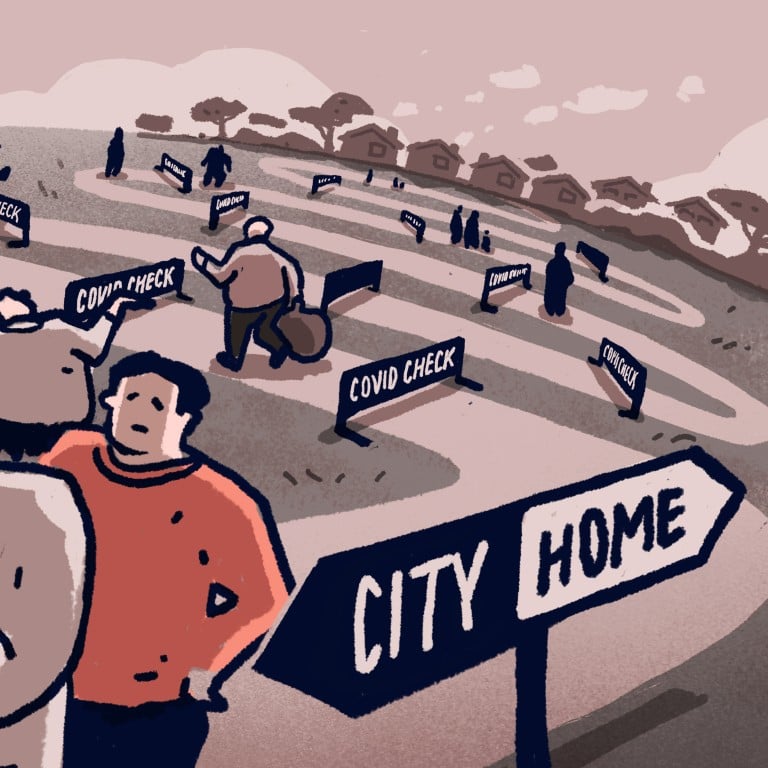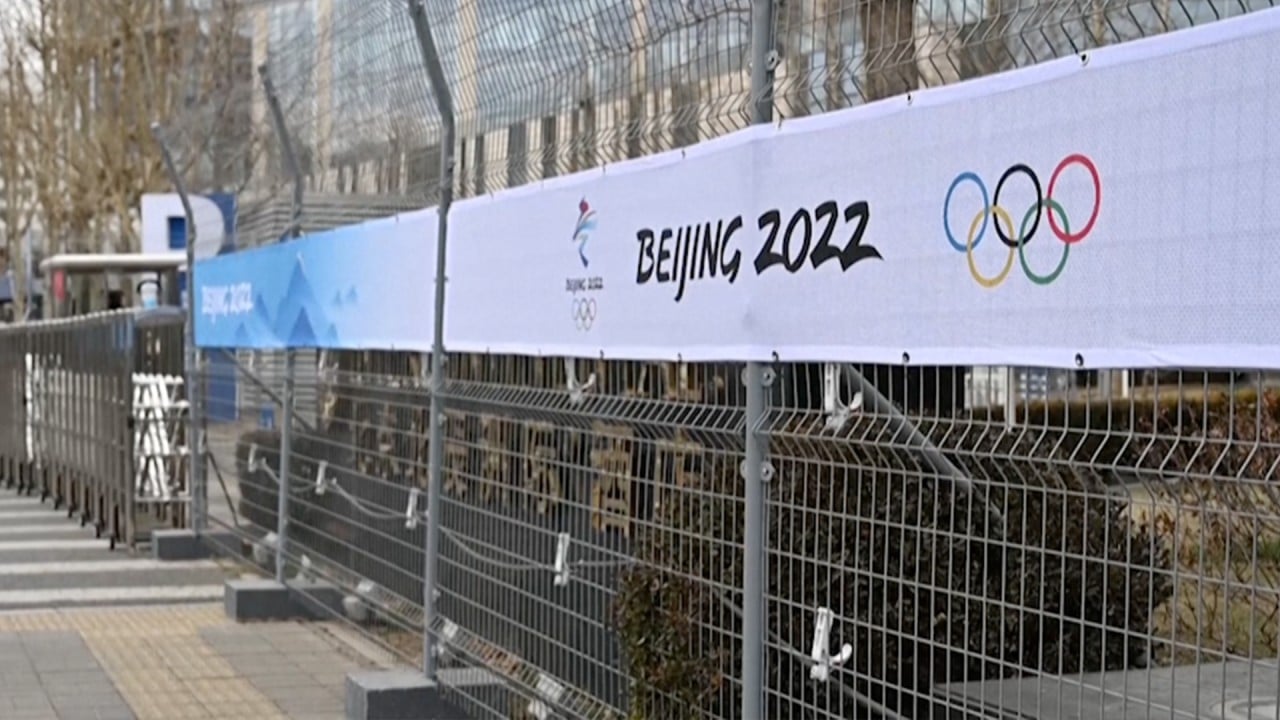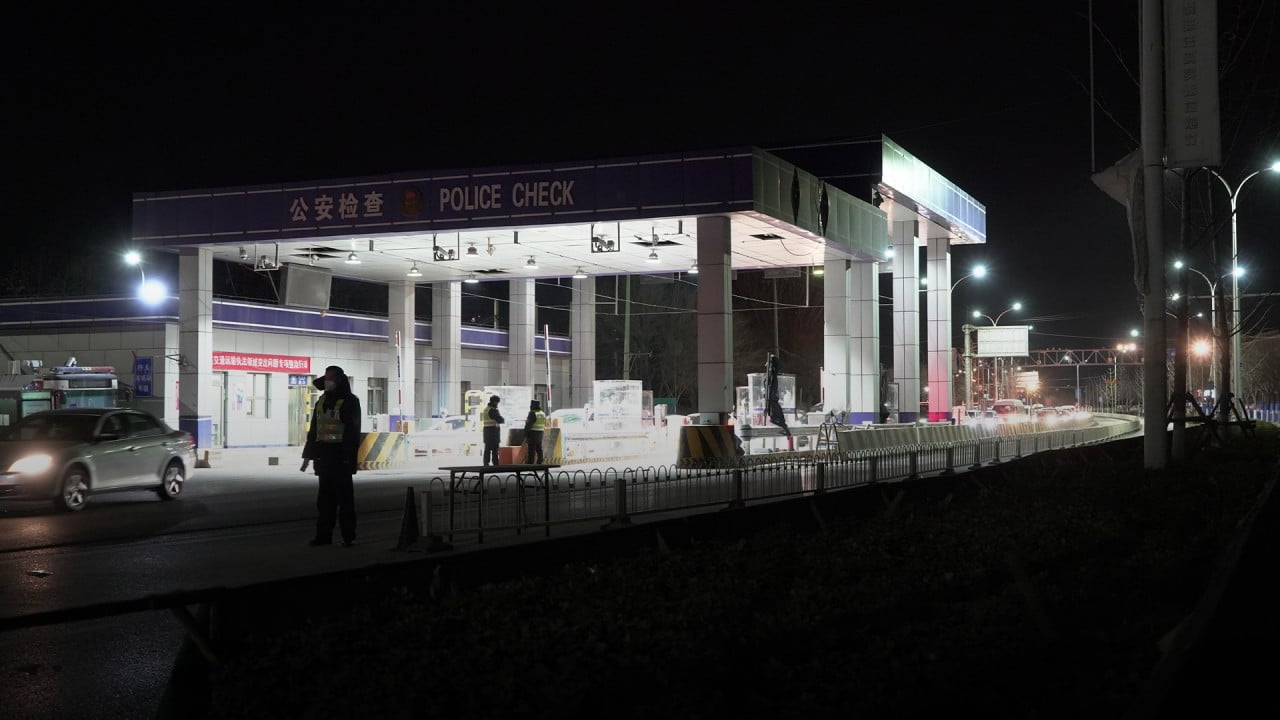
Wish we weren’t here: why Beijingers are braving a holiday getaway over the Lunar New Year
- With just weeks to go until the Winter Olympics, many residents of the capital are heading for the city’s exits
- But getting out means Covid-19 tests, paperwork and the uncertainty of lockdowns
Company executive Yang Jie, 36, is leaving Beijing for Sanya on the southern Chinese resort island of Hainan on Friday.
In Beijing alone, China Railway Beijing Group has forecast they would handle nearly 9 million railway trips to and from the capital during the period, more than double the total for the holiday last year.
While travel to these zones is largely banned, local governments have introduced various curbs to discourage passage to and from safe areas as well. For example, Hainan only allows people to enter if they can show a negative Covid-19 test result from the previous 48 hours.
Beijing has put in place more rigorous checks, including requiring a negative test result before people board a train or plane to the capital, and another test done in 72 hours after arrival.
But Yang had to do more than have Covid-19 tests. She had to file an application to her employer and the public school of her nine-year-old daughter. According to the Beijing Municipal Education Commission, students have to state the reasons, location, means of transport and time of departure and arrival in the application letter. When they return to Beijing, they must fill in another form and send it to their residential community.
“It’s a lot of trouble,” Yang said, sighing. “Anyway, I’ve made up my mind to see my parents in Sanya and give my child some happy time after two tedious years without any long-distance travel.
“I’m so determined to leave Beijing because life will be more inconvenient with the opening of the Winter Olympics,” she said, with the Games just over two weeks away.
Those inconveniences include a slew of traffic control measures in which most vehicles and pedestrians will be barred from at least six roads until the end of March. Olympic athletes, officials and volunteers are in a “closed-loop” – designed to seal participants off from any outbreak in the outside world, and contain any cases among Olympic personnel within the isolation bubble.
To prevent contamination, Beijing municipal authorities have even told residents to avoid all contact with Olympic vehicles, even if the vehicles are in an accident.
China’s zero-Covid policy: how does it work?
Xu Chong, 25, a migrant worker in Beijing, said he would go back to his hometown in Henan because the Olympic arrangements made him feel irrelevant.
“I was so excited about the chance to watch the Games at Beijing stadiums. But it’s become an unrealistic dream now,” Xu said.
In addition to overseas spectators, members of the public in China will not be able to buy tickets for the sporting event. After the discovery on the weekend of a person in Beijing infected with the Omicron variant, the Games’ organising committee announced on Monday that that events would be restricted to invitees only.
The Beijing municipal government has advised people not to leave the capital for the holiday. However, it is not compulsory, according to Xu Hejian, spokesman of the Beijing government.
“We won’t adopt a ‘one-size-fits-all’ approach,” Xu said last month. “We wish all residents, those in Beijing and elsewhere, an enjoyable Spring Festival.”
Dozens of local governments have also issued notices to encourage residents to avoid travel during the holiday which falls between January 31 and February 6 this year. Some cities said they would offer subsidies of up to 1,000 yuan (US$157) to those willing to stay put.
Chinese top respiratory diseases expert Zhong Nanshan said earlier that people in areas without containment, or low-risk areas, could make the move to return home for the Spring Festival. “There is no need for a social stoppage,” state news agency Xinhua quoted him as saying.
The restrictions are part of China’s zero-tolerance strategy on the coronavirus, an approach that has helped the country contain the pandemic, but also disrupted lives and cost the economy heavily.
The restrictions in the capital are unlikely to ease dramatically soon, with Beijing hosting the annual legislative sessions in March and the Communist Party’s five-yearly national congress in the autumn.
“I was bored to death when I spent last Spring Festival in Beijing alone,” Xu said. “This time, I will go back home to be with my parents, grandparents and niece and nephews. I will definitely be happier.”
Xu will take a seven-hour car trip with a coworker back to Kaifeng. Kaifeng is a “low-risk” area, but it is 80km (50 miles) east of Zhengzhou, an epicenter of the latest outbreak in Henan province.
“I hope the pandemic will not spread to Kaifeng. Going back home is like going on an adventure. Anyway, I’m willing to take the risk,” he said.
What next for China’s zero-Covid policy as Omicron travels the world?
Vincent Gao, 46, also plans to break out of Beijing despite working for a state-owned enterprise that has basically prohibited employees from leaving the capital.
“We’ve been informed we will be spectators for some Games events. We’ll probably be standing in the open air applauding and cheering athletes in the winter chill. Our supervisor has asked younger colleagues to be prepared. I’m not that young so I think I’ll be spared,” Gao said.
He plans to spend the holiday in his vacation home in neighbouring Hebei province. He bought the house in Xinglong county in 2019, betting that local property prices would rise as the Winter Olympics approached. The county is a two-hour drive from Beijing and located between the capital and Zhangjiakou, co-host of the Games.
“The property’s price has not appreciated. Nowadays, few people are interested in buying a holiday home given the policy curbs,” Gao said. “The ‘Olympic concept’ house has not been a great investment so all I can do is to stay in it to make the best use.”
China’s property market has cooled significantly in the last year with the announcement of a planned property tax, and various credit tightening measures.
In September, Zhangjiakou was one of at least eight cities that stepped in to try to stop the fall in prices for new homes after the average price slumped from the peak of 13,000 yuan (US$2,050) per square metre in recent years to 8,000 yuan. In Xinglong, the average price of flats on the secondary market has dropped about 5 per cent since the start of last year, according to data from Anjuke, a property information provider.
To avoid possible punishment from his employer, Gao said he would switch off his mobile phone to prevent giving any clue of his whereabouts.
“I’ll take the risk,” he said. “Some peaceful family time is worth it.”



